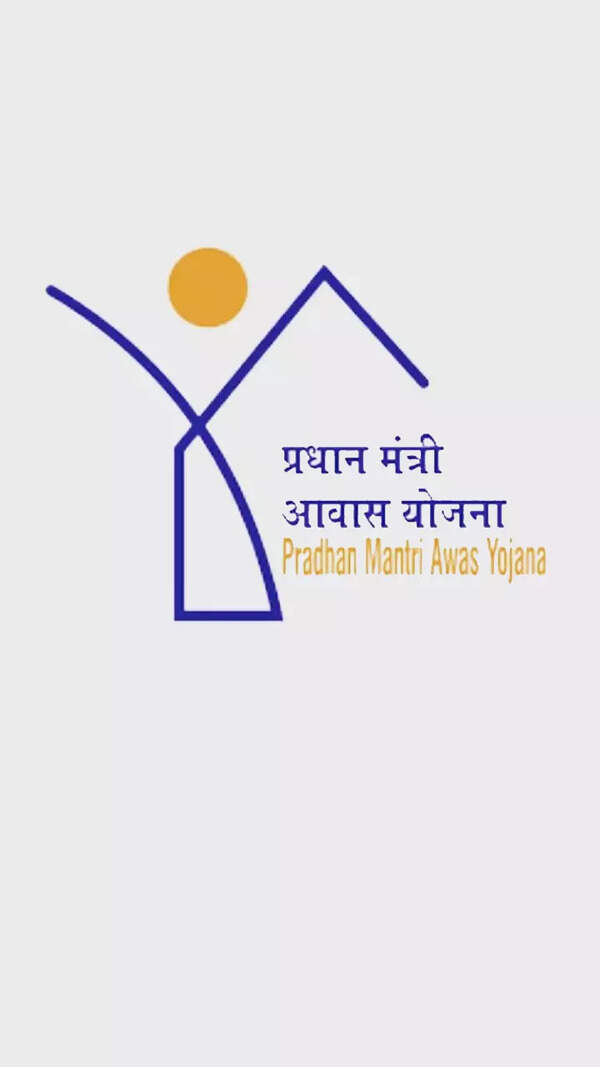- News
- Business News
- India Business News
- What is '20% TCS'? New rules for international credit card usage explained
Trending Topics
What is '20% TCS'? New rules for international credit card usage explained

NEW DELHI: The term "20% TCS" was one of the top trends on Twitter on Thursday after the Centre notified the amended rules under the Foreign Exchange Management Act (FEMA), which has brought international credit card (ICC) spending under the RBI's liberalised remittance scheme (LRS).
The also means that 20% tax will be levied on all such transactions from July 1, 2023.
So what does "20% TCS" really mean and how does the new rule impact Indians travelling abroad? Here's all you need to know ...
* On Tuesday, the government issued a notification striking down rule 7 of FEMA. This means that credit card spends in foreign currency will now be part of the liberalised remittance scheme (LRS) annual limit of $250,000 per person and subject to Tax Collection at Source (TCS).
LRS was introduced by RBI in 2004 to allow Indian residents to remit up to $250,000 per financial year (April-March) without prior permission from the apex bank.
* Earlier, international credit card swipes were exempt from TCS since they were not included in the LRS limit.
* This also means that if an individual wishes to spend more than $250,000, they would need prior approval from RBI.
* Moreover, foreign credit card transactions will attract TCS at the rate of 20% from July 1, up from 5% currently.
* The decision was taken by the Centre earlier this year. In the Union Budget 2023-24, the Centre hiked TCS rates to 20 per cent, from 5 per cent currently, on overseas tour packages and funds remitted under LRS.
* The only exceptions to the tax are credit card transactions made for educational and medical purposes.
* The 20% TCS on international credit card usage is expected to raise an additional Rs 10,000 crore for the government. The government had said that the tax will be used to fund social welfare programmes and infrastructure development.
* According to reports, taxpayers will be able to claim the 20% TCS back as a credit against their income tax liability. The TCS can be claimed in the Income Tax Return (ITR) filed for the financial year in which the remittance was made. The TCS certificate issued by the bank will be required to claim the credit.
Expert view
* The 20% TCS rule on international credit card usage met with mixed reactions. While some people welcomed the tax, saying that it will help to curb black money and improve tax compliance, others criticized it, saying that it will make travelling and shopping abroad more expensive for Indians.

* IndusLaw Partner Shreya Suri told news agency PTI the move will essentially require people undertaking transactions through ICCs during their travels in India to be cognizant of the restrictions on transactions listed out in Schedule III of the Rules, which are in terms of monetary caps imposed on certain identified transactions.
* Shardul Amarchand Mangaldas & Co Partner Yogesh Chande said deletion of Rule 7 with effect from May 16, 2023, will tighten the usage of international credit cards for making payments by a person towards meeting expenses while such person is on a visit outside India, and will specifically bring it within the purview of Schedule III of Foreign Exchange Management (Current Account Transactions) Rules, which deals with Liberalised Remittance Scheme (LRS). He said it will also allow RBI to monitor the usage of credit cards for the purposes of foreign travel more closely.
* Grant Thornton Bharat Partner Riaz Thingna said the notification essentially means that credit card spends outside India will also get roped within the ambit of the overall cap of USD 2,50,000.
"This is irrespective of the fact that whether such spends are for personal or business purposes and there is a consequential TCS impact," Thingna added.
Some more FAQs
How will the 20% TCS be collected?
The 20% TCS will be collected by the bank or financial institution that issues the international credit card. The bank would collect an additional amount of 20% from the credit card holder to deposit the same as TCS with the government. For example, if a credit card holder spends $10,000 abroad, the bank would collect $2,000 as TCS and deposit it with the government.
The TCS collected would be deposited in the credit card holder’s Permanent Account Number (PAN) which can be adjusted against any income tax liability for that financial year. The TCS can be claimed in the Income Tax Return (ITR) filed for the financial year in which the remittance was made. The TCS certificate issued by the bank will be required to claim the credit.
What is TCS?
TCS stands for Tax Collection at Source. It is a tax that is collected by a third party, such as a bank or credit card company, on behalf of the government. In the case of the 20% TCS on international credit card usage, the banks and credit card companies will be collecting the tax from the cardholders and then remitting it to the government.
How will the 20% TCS be calculated?
The 20% TCS will be calculated on the amount of money that is spent using an international credit card outside of India. For example, if you spend $100 on your credit card while you are on vacation in the United States, you will be charged a TCS of $20.
How will the 20% TCS be paid?
The 20% TCS will be paid by the cardholder to the bank or credit card company when they make the transaction. The bank or credit card company will then remit the tax to the government.
What are the implications of the 20% TCS for cardholders?
The 20% TCS will increase the cost of using an international credit card. This is because the cardholder will have to pay the TCS in addition to the amount of money that they spend. The TCS could also make it more expensive for cardholders to travel abroad, as they will have to factor in the cost of the TCS when they are budgeting for their trip.
What are the implications of the 20% TCS for the government?
The 20% TCS is expected to generate additional revenue for the government. This is because the government will collect the tax from the banks and credit card companies, and then use the tax revenue to fund government programs.
What are the concerns about the 20% TCS?
Some people have expressed concerns about the 20% TCS. One concern is that it will make it more expensive for people to travel abroad. Another concern is that it could lead to people using cash instead of credit cards, which could make it more difficult for the government to track financial transactions.
What are the benefits of the 20% TCS?
Some people believe that the 20% TCS could have some benefits. One benefit is that it could help to reduce the amount of money that is being illegally transferred out of India. Another benefit is that it could help to increase the government's tax revenue.
Overall, the 20% TCS is a new tax that will have a significant impact on people who use international credit cards. It is important to understand the implications of the tax before you make any travel plans.
(With inputs from PTI)
The also means that 20% tax will be levied on all such transactions from July 1, 2023.
So what does "20% TCS" really mean and how does the new rule impact Indians travelling abroad? Here's all you need to know ...
* On Tuesday, the government issued a notification striking down rule 7 of FEMA. This means that credit card spends in foreign currency will now be part of the liberalised remittance scheme (LRS) annual limit of $250,000 per person and subject to Tax Collection at Source (TCS).
LRS was introduced by RBI in 2004 to allow Indian residents to remit up to $250,000 per financial year (April-March) without prior permission from the apex bank.
* Earlier, international credit card swipes were exempt from TCS since they were not included in the LRS limit.
* This also means that if an individual wishes to spend more than $250,000, they would need prior approval from RBI.
* Moreover, foreign credit card transactions will attract TCS at the rate of 20% from July 1, up from 5% currently.
* The decision was taken by the Centre earlier this year. In the Union Budget 2023-24, the Centre hiked TCS rates to 20 per cent, from 5 per cent currently, on overseas tour packages and funds remitted under LRS.
* The only exceptions to the tax are credit card transactions made for educational and medical purposes.
* The 20% TCS on international credit card usage is expected to raise an additional Rs 10,000 crore for the government. The government had said that the tax will be used to fund social welfare programmes and infrastructure development.
* According to reports, taxpayers will be able to claim the 20% TCS back as a credit against their income tax liability. The TCS can be claimed in the Income Tax Return (ITR) filed for the financial year in which the remittance was made. The TCS certificate issued by the bank will be required to claim the credit.
Expert view
* The 20% TCS rule on international credit card usage met with mixed reactions. While some people welcomed the tax, saying that it will help to curb black money and improve tax compliance, others criticized it, saying that it will make travelling and shopping abroad more expensive for Indians.

* IndusLaw Partner Shreya Suri told news agency PTI the move will essentially require people undertaking transactions through ICCs during their travels in India to be cognizant of the restrictions on transactions listed out in Schedule III of the Rules, which are in terms of monetary caps imposed on certain identified transactions.
* Shardul Amarchand Mangaldas & Co Partner Yogesh Chande said deletion of Rule 7 with effect from May 16, 2023, will tighten the usage of international credit cards for making payments by a person towards meeting expenses while such person is on a visit outside India, and will specifically bring it within the purview of Schedule III of Foreign Exchange Management (Current Account Transactions) Rules, which deals with Liberalised Remittance Scheme (LRS). He said it will also allow RBI to monitor the usage of credit cards for the purposes of foreign travel more closely.
* Grant Thornton Bharat Partner Riaz Thingna said the notification essentially means that credit card spends outside India will also get roped within the ambit of the overall cap of USD 2,50,000.
"This is irrespective of the fact that whether such spends are for personal or business purposes and there is a consequential TCS impact," Thingna added.
Some more FAQs
How will the 20% TCS be collected?
The 20% TCS will be collected by the bank or financial institution that issues the international credit card. The bank would collect an additional amount of 20% from the credit card holder to deposit the same as TCS with the government. For example, if a credit card holder spends $10,000 abroad, the bank would collect $2,000 as TCS and deposit it with the government.
The TCS collected would be deposited in the credit card holder’s Permanent Account Number (PAN) which can be adjusted against any income tax liability for that financial year. The TCS can be claimed in the Income Tax Return (ITR) filed for the financial year in which the remittance was made. The TCS certificate issued by the bank will be required to claim the credit.
What is TCS?
TCS stands for Tax Collection at Source. It is a tax that is collected by a third party, such as a bank or credit card company, on behalf of the government. In the case of the 20% TCS on international credit card usage, the banks and credit card companies will be collecting the tax from the cardholders and then remitting it to the government.
How will the 20% TCS be calculated?
The 20% TCS will be calculated on the amount of money that is spent using an international credit card outside of India. For example, if you spend $100 on your credit card while you are on vacation in the United States, you will be charged a TCS of $20.
How will the 20% TCS be paid?
The 20% TCS will be paid by the cardholder to the bank or credit card company when they make the transaction. The bank or credit card company will then remit the tax to the government.
What are the implications of the 20% TCS for cardholders?
The 20% TCS will increase the cost of using an international credit card. This is because the cardholder will have to pay the TCS in addition to the amount of money that they spend. The TCS could also make it more expensive for cardholders to travel abroad, as they will have to factor in the cost of the TCS when they are budgeting for their trip.
What are the implications of the 20% TCS for the government?
The 20% TCS is expected to generate additional revenue for the government. This is because the government will collect the tax from the banks and credit card companies, and then use the tax revenue to fund government programs.
What are the concerns about the 20% TCS?
Some people have expressed concerns about the 20% TCS. One concern is that it will make it more expensive for people to travel abroad. Another concern is that it could lead to people using cash instead of credit cards, which could make it more difficult for the government to track financial transactions.
What are the benefits of the 20% TCS?
Some people believe that the 20% TCS could have some benefits. One benefit is that it could help to reduce the amount of money that is being illegally transferred out of India. Another benefit is that it could help to increase the government's tax revenue.
Overall, the 20% TCS is a new tax that will have a significant impact on people who use international credit cards. It is important to understand the implications of the tax before you make any travel plans.
(With inputs from PTI)
Start a Conversation
FOLLOW US ON SOCIAL MEDIA
FacebookTwitterInstagramKOO APPYOUTUBE















